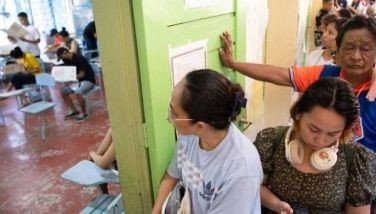Funding

The debate of the day is over the need to establish a sovereign wealth fund – similar to what a large portion of countries have established for themselves.
A bill has been introduced at the House of Representatives by Martin Romualdez and Sandro Marcos proposing a Maharlika Sovereign Wealth Fund drawn from contributions by the LBP, the DBP, the SSS and the GSIS. The contributions will be supplemented by capital allocations from the national budget.
There are sterling examples of the usefulness of sovereign wealth funds. Norway’s sovereign fund, drawn from the country’s oil earnings, is a fine example. This fund is investing billions of dollars in Philippine renewable energy initiatives.
There are dire examples, too. Malaysia’s 1MDB fund was looted by its former prime minister who has been sentenced to jail for that. The way that fund was organized made it vulnerable to looting.
A sovereign wealth fund for the Philippines is understood as a mechanism for more profitable revenues to benefit future generations. The SSS, GSIS, LBP and DBP are limited to “safe” investments mainly to protect shareholders. Lower investment risks translate into lower yield.
If the creation of a sovereign wealth fund is intended to optimize earnings, this seems to imply putting money in ventures with higher investment risks. This is not pleasant for shareholders who want assurance their pensions will not be put at risk.
President Marcos Jr. is said to be supportive of the proposal to establish our own sovereign wealth fund. This will provide a mechanism to fund development projects in scale that will have longer terms for returning on investment. But this is already the mandate of the DBP and the LBP – although they may not have the capacity to invest in the scale required to push the economy towards a higher growth plane.
Funding large projects to impact on the country’s development recalls the “major industrial projects” undertaken during the Marcos I administration. All of those projects, adequately capitalized but probably a shade too ambitious, floundered on the shoals of crony capitalism.
From experience, any available funding for development will immediately come under intense political pressure. I recall the Sustainable Logistics Program of the DBP, which includes the nautical highways system, during the time I served on the board of this government financial institution. One day, a group of provincial governors called on me to complain why some provinces get financing while others did not.
I showed them a map of the logistics system we were trying to build to link our island economies and explained the need for strategic investments in ports, silos, inter-island shipping and cold chains to constitute a sustainable, cohesive and synergy-driven system. Then I bluntly told them that the “B” in DBP was for “Bank” and not for “Barrel” (as in pork barrel).
Any institutional design for the proposed sovereign fund must ensure transparency, of course. But it must also build in enough guardrails against the politicization of funding.
Capital-starved
Probably the biggest reason our economy is lagging behind our neighbors is insufficiency of capital. The main reason our agriculture is failing is that our farms have been the most shielded from market forces and therefore remain trapped in subsistence mode. Blame economic nationalist orthodoxy for this.
We have been opening doors to investment flows, although none seem to attract the robust investments our neighbors enjoy. Our constitutional framework remains hostile to the entry of investments from capital-rich countries.
Among the latest efforts to attract investments into our economy is the Amended Foreign Service Act (RA 11659). This law reinterprets categories of investment activity to skirt around the obsolete prohibitions enshrined in the restrictive 1987 Constitution. For instance, the constitutional prohibition on foreigners owning land now excludes reclaimed areas under the definition of land. This is an extension of previous legislative efforts to circumvent constitutional restrictions such as allowing foreigners, banned from owning land, to acquire condominium units.
So far, however, notwithstanding the enthusiasm of government agencies for entertaining proposals for fully owned investments in renewable energy or information technology, no major investment has been posted. Earlier this year, the market was agog with talk about Elon Musk’s Starlink system coming into the country under a more liberal Public Service Act to provide rapid internet services using low-orbiting satellites. Excitement over that possibility has died down.
Investors, it turns out, have a number of concerns that are not assuaged by this market-opening law.
For one, they are worried that RA 11659 may still be subject to a constitutionality challenge. One retired justice did say aloud that the law was unconstitutional. That is enough to keep potential investors at bay.
Investors are also worried there are not enough safeguards provided in the law to protect them from possible government takeovers or sequestration. Specifically, they are concerned over a provision in the Implementing Rules and Regulations of the Build Operate and Transfer Law that allows government to retain control of any privately funded project upon reasonable compensation. This provision provides for Material Adverse Government Action (MAGA) that is unilaterally determined by government.
This provision, buried in the dense detail, is like a poison pill threatening potential investors. Left uncorrected, it will deter investments much more effectively than the amended Public Service Act might try to attract them – especially as some of our policymakers have expressed misgivings about the liberalization law.
The amended Public Services Act is in danger of becoming yet another ineffectual piece of legislation.
- Latest
- Trending





























